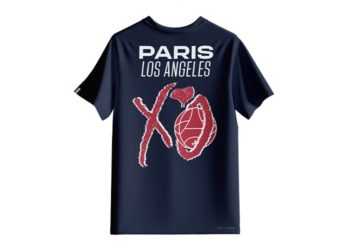Last August, nine workers across the United States, ages 19 to 71, died of heat-related causes while working jobs that involved things like cutting the grass, unloading trucks, repairing farm equipment or doing construction, according to federal workplace data. Because heat-related deaths are difficult to track, that number is likely an undercount.
Starting Monday, the Occupational Safety and Health Administration will hold public hearings on a proposed rule to prevent heat-related illnesses and deaths at work, which is the first federal rule of its kind. Put forward last summer by the Biden administration, the regulation would require employers to provide water and rest breaks when temperatures surpass certain levels.
The Trump administration did not respond to request for comment on its plan for the standards, and it is not legally obligated to implement them. President Trump has pursued a broad deregulatory agenda, pushing to roll back environmental and safety regulations, and the rule as written has faced opposition from businesses and Republicans.
Deaths and illnesses related to heat exposure have increased sharply in recent years as climate change pushes temperatures higher. Last summer was the hottest on record, in the hottest year on record, and on average heat kills more people each year than hurricanes, floods and tornadoes combined, according to the National Weather Service.
“All heat-related deaths are preventable because they all result from an overexposure that can be prevented,” said Dr. John Balbus, who co-chaired a government working group to address heat during the Biden administration.
Mr. Trump’s pick to lead OSHA, David Keeling has also raised concerns among some workers’ health advocates. Mr. Keeling is a former health and safety executive at UPS and Amazon, and both companies have been fined for workplace safety citations, including for heat-related illnesses.
Some of the rule’s critics have indicated they would support a different version of a heat safety standard. Health advocates saw the Trump administration’s decision to move forward with public hearings as a potentially positive sign, though they feared the federal government would push through a weak rule that would prevent certain state and local governments from passing stricter measures.
Heat puts stress on the body, which cools itself by increasing blood flow and sweating. The cooling process makes the heart work harder. Heat stress can increase the risk of other cardiovascular issues like heart attacks, which is part of the reason heat-related deaths are so difficult to count.
Prevention of heat-related illnesses can be straightforward: People generally need shade, rest and water, Dr. Balbus said.
The proposed OSHA rule establishes heat thresholds that trigger specific employer responsibilities. At a heat index of 80 degrees, companies must provide water and break areas. At 90 degrees, they must offer 15-minute breaks once every two hours, in addition to other measures. The heat index combines air temperature with humidity to measure how hot the air feels to a human body.
These thresholds are based on scientific research. A 2020 study by researchers at OSHA identified a “heat death line,” a temperature below which few heat deaths occur. Based on an examination of 570 heat-related deaths, they put the figure at 80 degrees and determined that 96 percent of deaths happened at temperatures above the line, though many heat-related illnesses began in cooler weather.
In public comments submitted to the agency, the Chamber of Commerce pushed back on national thresholds, arguing that workers in places like the Southwest are better acclimated to working in hot conditions.
At a Congressional hearing last month, Republican Mary Miller, a representative of Illinois, said the rules would “wreak havoc on businesses and communities across the country” and were “a mandate designed to appease climate change activists.”
Mr. Keeling could not be reached for comment about whether he supports the heat rules. UPS said in a statement that it was always looking for ways to improve safety. Amazon said that safety was its top priority.
Seven states have adopted their own workplace heat rules, and others are considering similar measures. “I think there’s more active campaigns right now for state and local standards than I’ve seen in the entire time I’ve been working on this,” said Juanita Constible, a senior environmental health advocate at the Natural Resources Defense Council, who has been tracking the issue since 2018.
State legislatures in Florida and Texas have passed laws that prevent local governments from establishing their own workplace heat standards.
An OSHA rule with no specific break requirements would override some state and local measures, said David Michaels, a professor at George Washington University who was the assistant secretary of labor during the Obama administration. For example, he said, Colorado has a rule guaranteeing farm workers 10-minute breaks every two hours when temperatures exceed 95 degrees.
Mr. Michaels said he thought OSHA would ultimately implement a watered-down rule that effectively cancels out standards like Colorado’s. “The idea that they will put out a strong worker protection standard seems pretty unlikely to me,” he said.
Hiroko Tabuchi contributed reporting.
Claire Brown covers climate change for The Times and writes for the Climate Forward newsletter.
The post Will Trump End the First Federal Heat Protections for Workers? appeared first on New York Times.



